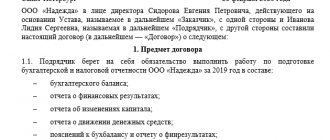06/11/2017 Detention and arrest 0 comments
Every citizen must be held accountable for unlawful actions. If we analyze all types of liability, we can conclude that softer ones are most often used than hard ones. One way to punish someone who breaks the law is to subject them to compulsory labor.
general information
According to Article 49 of the Criminal Code of the Russian Federation, the essence of these works is that the person convicted by a court sentence is not deprived of his freedom, he continues to study or work, lives in the same place, but in his free time from work or other daily activities he is obliged to perform community service work for free .
The court, when passing a sentence, does not indicate in it what kind of work the convicted person must do. This is decided for him by local government bodies , which agree on the order for the convicted person together with the criminal correctional inspection.
As a rule, the work that a convicted person has to perform is related to the improvement of the locality where he lives. He will have to remove garbage, do earthworks, do landscaping, plant seedlings, and take part in the repair of roads, bridges, and houses.
Naturally, we are not talking about any complex or responsible work here. The convict will perform all the work that can be assigned to a general worker. She is unskilled and heavy.
This includes cleaning the area near apartment buildings, as well as staircases in the entrances of these buildings, cleaning basements and attics. The convicted person may be forced to repair public utility systems such as sewerage systems, as well as water supply systems. He may also be responsible for loading and unloading operations.
this type of punishment cannot be applied to him .
During court hearings, the court will be required to establish his ability to work. It may turn out that he cannot perform certain types of heavy work due to health reasons. In this case, another type of punishment will be applied to him.
What are the advantages of working with the self-employed?
It is beneficial for companies to work with self-employed people, as it involves a minimum of formalities:
- It's simple, no bureaucracy. You can pay for services in cash or by card, and a receipt from the “My Tax” application from a self-employed person will serve as confirmation of your expenses.
- You can optimize employee costs. You will not have to pay personal income tax or transfer insurance contributions to funds.
Your task is to pay for the work, the rest falls on the shoulders of the self-employed. An NAP payer costs at least 30–40% less than a full-time specialist. For a full-time employee who receives 50,000 rubles, you will spend 74,830 rubles. Pay the self-employed 50,000 and not a penny more. - No additional costs. You pay for the work done, not for the time spent in the office. You also do not pay for vacations, sick leave and maternity leave.
- It’s easier to “break up” with a self-employed person if something goes wrong. At any time, you can refuse to cooperate and enter into an agreement with another contractor, but a full-time specialist cannot be fired without a good reason.
Peculiarities
The features of this type of punishment are that, firstly, it allows the convicted person not to break away from society .
His daily life undergoes small changes, which relate to the need to allocate some time to perform mandatory work.
Secondly, the convicted person, while serving compulsory work, seems to exchange the time spent in places of deprivation of liberty for the time of serving compulsory work. Moreover, he has a very favorable tariff: 8 hours of such work per day of imprisonment .
Only the time that the convicted person could work while in prison is taken into account.
But it is obvious that the remaining 16 hours in prison , which the convict could spend after work, cannot be called relaxation and a pleasant pastime.
Is it worth working with a self-employed accountant?
An accountant can also be self-employed, but there are some nuances:
- Typically, visiting specialists have many companies to service and little time. You may wait a long time for an answer to a question or a solution to your problem.
- Such an accountant is irreplaceable, which is bad. If he goes on vacation or gets sick, you will be left without support for a while or will receive it intermittently.
- The main disadvantage of working with self-employed people is that they usually do not bear financial responsibility for their mistakes, which can even lead to the blocking of accounts. Most likely, you will have to deal with the tax authorities yourself, pay fines and penalties.
- The accountant may simply disappear and stop answering your calls.
There is an alternative - outsourcing accounting with a financial guarantee. For example, at Finguru we make it easier for entrepreneurs to interact with accountants and make the work process more transparent:
- We allocate three accountants (for taxes, payroll and primary accounting) and a personal assistant who distributes tasks and monitors their implementation;
- deadlines for submitting reports to regulatory authorities and completing other key tasks are additionally monitored by the software;
- We promptly replace an accountant with a specialist of a similar profile if he gets sick or goes on vacation, so that this does not affect the completion of tasks;
- We insure for a million rubles against accounting errors and their consequences.
Want to forget about micromanagement and fines?
Try outsourcing accounting services! We are replacing a full-time accountant and are financially responsible in the amount of one million rubles. This is how we work
Who are they assigned to?
This punishment is imposed on persons who have committed a criminal offense of minor and medium gravity .
But they are prohibited from being prescribed to the following categories of persons:
- women who are at any stage of pregnancy, and also who have children under three years of age;
- persons with disabilities of the first group;
- conscripts who are undergoing military service, as well as contract military personnel who, at the time of sentencing, have not completed their assigned term of service.
Punishment without deprivation of communication with people
Compulsory labor is one of the types of criminal penalties that is not associated with the isolation of a person from society. The distinctive feature of this punishment is the absence of round-the-clock correctional coercion in the commentary to Article 49.
The following are considered positive aspects of applying measures without depriving people of the opportunity to communicate with people:
- Low level of repressiveness, allowing you to communicate without restrictions in society with other people.
- Relationships with relatives remain inextricable.
- Lack of measures to adapt the convicted person after execution of the sentence, since the social situation did not change.
- There is no connection with the criminal world and, as a result, personality degradation does not occur.
- The effectiveness of public control in the process of execution of work.
The legislation provides for several criminal articles under which those convicted, when brought to justice, remain in civil society.
Compulsory labor is used as punishment for minor crimes:
- in relation to someone else's property;
- against the activities of enterprises and organizations;
- other similar acts.
The places where compulsory labor is performed are designated by the executive authorities of the constituent entities. Divisions of the penal system agree on the objects and form of such work.
The performance of work does not require any professional qualifications from the convicted person. Examples of work performed include:
- Cleaning streets, parks, squares, squares, public transport stops.
- Planting green spaces.
- Support work in shelters and nursing homes.
Types of work are assigned based on the personal characteristics and skills of each person serving a sentence.
Other factors in assigning a certain type of punishment are the possibility of monitoring its execution and the requests of the convicted person.
For how long?
It was stated above that the court, when passing a sentence, does not indicate the type of compulsory work. The verdict establishes only their size.
The minimum amount that a defendant can count on is 60 hours of this work , the maximum is 480 hours .
If the court sets the term for this work based on a combination of various crimes, then the final amount of work cannot be higher than that established in the Criminal Code. If the number of hours of compulsory work in the sentence is more than 480 hours , then this sentence will be considered illegal.
How to pay self-employed people with an LLC or individual entrepreneur and take payments into account when calculating taxes
There are three ways to pay for self-employed services:
- according to the invoice;
- transfer using the details of a personal card of any bank;
- transfer using an electronic wallet number.
If the funds are transferred to the account of a self-employed non-resident, the transfer will be considered foreign currency and you will most likely have to pay a fee.
To receive payment, the self-employed must prepare and give you a certificate of completion of work. You can view and download using the link.
After payment, self-employed, which indicates the name of the service, its cost and the TIN of your company. Without a receipt, write off payment for services as expenses.
This is what a check from a self-employed person should look like.
at the time of settlement or no later than the 9th day of the next month. That is, if the contractor received payment in November, he must provide the check by December 9. If a self-employed person does not send a check on time, you can complain about it.
You can store receipts both in paper and electronic form. Based on the work completion certificate and receipt, the payment can be taken into account as an expense and excluded from the tax base if the applicable tax regime allows this.
If for some reason the self-employed person returned the amount paid and canceled the check, you will have to recalculate the expenses and the tax amount.
Execution order
Control over the execution of compulsory labor by law is assigned to the divisions of the criminal executive authorities at the place of registration of the person serving the sentence. The enterprises where those convicted by court decision must work are determined by the administrations of the territorial division.
The list of these organizations, compiled in the form of a table or list, is agreed upon by the body monitoring execution. The law establishes that work begins within fifteen days from the moment the materials are received by the inspectorate.
The divisions of executive bodies perform the following functions:
- take into account persons assigned to compulsory work;
- explain the rules for performing work;
- control the execution of punishment and labor discipline of convicts;
- take into account the receipt of funds for the work performed.
The enterprises where the work is performed transfer the funds earned by the convicts every month. Labor is valued according to the tariffs established at the enterprise. The funds earned by the convicted person are of a targeted nature and are transferred to the budget of the relevant organization.
If an accident occurs to a convicted person while performing work, then the administration of the enterprise is guided by Labor legislation. The damage received is compensated to the person serving the sentence in full.
List of duties of convicted persons under Article 49
If you turn to legal literature and download from the Internet a new diploma project with a topic relating to the duties of those convicted under Article 49, you should pay attention to the briefly outlined list of violations allowed during the performance of compulsory labor:
- Ignoring calls from the inspectorate for accounting and other issues related to the organization of execution of punishment.
- Absenteeism from compulsory labor in the absence of objective reasons.
- Failure to comply with the organization's labor regulations.
- Committing a disciplinary violation.
- Intentional failure to provide the inspector with information about the new residential address.
Having committed these violations, the convicted person receives a warning from the inspectorate to replace this punishment with another one provided for in Article 49. A warning takes the form of an order.
The procedure provides for the production of a copy of the said order. It is attached to the case materials of the person assigned to compulsory work. The content of the document providing for a warning indicates the likely replacement of this punishment with others, the essence of which boils down to restriction or imprisonment.
Citizens performing such work must:
- do not violate the internal routine;
- Responsibly carry out the assigned production task;
- comply with the period determined by the court decision;
- promptly report any changes to your settings.
These requirements are confirmed by the fact that compulsory labor imposed by the court is not exactly a light punishment, but has a significant impact on the convicted person.
Article 42
1. The term of correctional labor is calculated in months and years during which the convicted person worked and deductions were made from his wages. In each month of the established sentence, the number of days worked by the convicted person must be no less than the number of working days falling in that month. If the convicted person has not worked the specified number of days and there are no grounds established by this Code for counting unworked days toward the sentence, the serving of correctional labor continues until the convicted person has completed the required number of working days.
2. The beginning of the term of serving correctional labor for a convicted person who does not have a main place of work is the day he goes to work, and for a convicted person who has a main place of work, the day the administration of the organization in which the convicted person works receives the relevant documents from the penal inspection.
On the day the period of correctional labor ends, the inspectorate sends a corresponding message to the convict’s place of work about the termination of deductions from his wages. If a convicted person is released for other reasons, the inspection notifies the organization no later than the next working day after receiving the relevant documents (clause 95 of the Instructions). The form of this message is given in Appendix No. 35 to the Instructions.
In the work books of persons who have served correctional labor without imprisonment, an entry is made at the place of work stating that the time worked during this period is not counted towards continuous work experience. This entry should be made at the end of the actual term of serving the sentence, which is established according to certificates from the internal affairs bodies. This is indicated in clause 22 of the Rules for maintaining and storing work books, producing work book forms and providing them to employers, approved by Decree of the Government of the Russian Federation of April 16, 2003 N 225 “On work books”.
- Keeping records of convicts and their work schedules;
- Explaining to convicts the procedure for execution of punishment;
- Coordination of the list of objects for serving compulsory labor with local government bodies;
- Initiating a change in the procedure for the execution of punishment in the event of violations in the serving of work by a convicted person.
As for the implementation of labor activities of a citizen within the framework of this punishment, it is impossible to involve him in work on weekends and holidays. However, he can petition in writing that he is ready to work these days to speed up the development of the norm established by the court.
Article 42 of the Penal Code of the Russian Federation
1. The term of correctional labor is calculated in months and years during which the convicted person worked and deductions were made from his wages. In each month of the established sentence, the number of days worked by the convicted person must be no less than the number of working days falling in that month. If the convicted person has not worked the specified number of days and there are no grounds established by this Code for counting unworked days toward the sentence, the serving of correctional labor continues until the convicted person has completed the required number of working days. 2. The beginning of the term of serving correctional labor for a convicted person who does not have a main place of work is the day he goes to work, and for a convicted person who has a main place of work, the day the administration of the organization in which the convicted person works receives the relevant documents from the penal inspection. (Part 2 as amended by Federal Law No. 420-FZ of December 7, 2011) 3. The time during which the convicted person did not work does not count toward the term of serving correctional labor. (as amended by Federal Laws dated December 8, 2003 N 161-FZ, dated June 3, 2009 N 106-FZ) 4. In cases of serious illness of the convicted person, which prevents him from serving his sentence, or he is recognized as a disabled person of the first group, the convicted person has the right to apply to the court with a petition for releasing him from further serving his sentence. (Part four as amended by Federal Law No. 12-FZ of January 9, 2006) 5. In the event of pregnancy, a woman sentenced to correctional labor has the right to petition the court to defer her sentence from the date of granting maternity leave. (Part five as amended by Federal Law No. 12-FZ of January 9, 2006) 6. The sentence for convicted persons working in organizations that use summary recording of working time is calculated based on the duration of working time for the accounting period not exceeding the established number of workers hours. 7. Lost power. – Federal Law of June 3, 2009 N 106-FZ.
1. Correctional labor is established for a period of two months to two years (Article 50 of the Criminal Code of the Russian Federation), and for minors - for a period of up to one year (Article 88 of the Criminal Code of the Russian Federation). The term of correctional labor is calculated in months and years during which the convicted person worked and deductions were made from his wages. The beginning of the term of serving the sentence is the day the convicted person goes to work. The Penitentiary Inspectorate sends to the organization where the convict will work a copy of the court verdict (ruling, resolution), and also attaches a notice that indicates the responsibilities of the convict and the administration of the organization, explains the conditions for serving correctional labor and the procedure for making deductions from the convict’s wages. 2. The calculation of the term is made on the basis of data on the number of days to be included in the term of serving the sentence, which must be no less than the number of working days falling in accordance with the organization’s work schedule for each month, its individual periods and the calendar period of correctional labor established by the court. If the convicted person has not worked the required number of days by the time the sentence is calculated, then, in the absence of grounds for counting the unworked days toward the period of correctional labor, serving the sentence continues until the convicted person has completed the required number of working days. In organizations where summary (hourly) recording of working time is used, the period is calculated based on the duration of working time for the accounting period, not exceeding the established number of working hours and days. 3. Currently, there is a rule that the time during which the convicted person did not work for a good reason is not included in the term of serving the sentence. At the same time, the period of serving correctional labor, in addition to the period when the convicted person worked and deductions were made from his wages, includes the time during which the convicted person: was on regular or additional leave; was officially declared unemployed and received unemployment benefits; was in pretrial detention in connection with the commission of a crime for which correctional labor was assigned; was in places of imprisonment from the moment of the issuance of a ruling (decision), court sentence, act of pardon or amnesty, providing for the replacement of the unserved sentence of imprisonment with correctional labor, until the actual release from custody. The time spent in pre-trial detention and in places of deprivation of liberty is counted at the rate of one day of detention for three days of correctional labor. Every day is subject to credit towards the sentence, regardless of how long the convicted person was in custody during the last day. 4. The term of serving a sentence does not include the time during which the convicted person did not work and was not paid wages or unemployment benefits, including time: absence from work without good reason (absenteeism); serving an administrative sentence in the form of arrest; detention or house arrest as a preventive measure in another criminal case while serving correctional labor; being on leave without pay; illness caused by alcohol, drug or toxic intoxication, as well as related actions; failure to execute a sentence due to the postponement of its serving. 5. The commented article provides the grounds and legal consequences of the release of those sentenced to correctional labor. In the event of a serious illness of the convicted person, which prevents further serving of the sentence, the Penitentiary Inspectorate sends to the court a proposal for his release from serving the sentence. In relation to a convicted person recognized as a disabled person of the first or second group, the Penitentiary Inspectorate submits to the court a proposal for early release from punishment. If a convicted woman becomes pregnant while serving her sentence, the Penitentiary Inspectorate sends a proposal to the court to defer correctional labor from the date of granting maternity leave. In the first two cases, the submission is accompanied by the conclusion of a medical or medical-labor expert commission and the personal file of the convicted person, and if the convicted person becomes pregnant, a certificate from her place of work indicating the date of release from work in connection with pregnancy and childbirth, a copy of the child’s birth certificate and a certificate from the house management stating that the child lives with his mother. 6. The law does not define the procedure for performing correctional labor in relation to convicts who reached retirement age while serving their sentence and for this reason left work. In practice, in such cases, the penitentiary appeals to the court to resolve the issue of further serving the sentence. 7. The correct calculation of the term of correctional labor and the timely release of convicts from punishment depend on how their personal records are organized. IUIs use such types of records as operational, preliminary, control and wanted records.
You might be interested ==> Who is an Orphan under the Law of the Russian Federation










